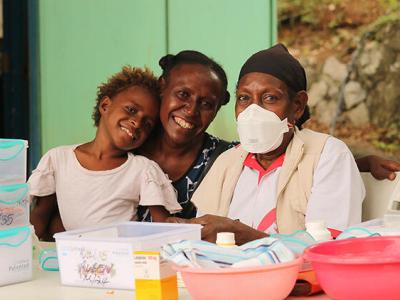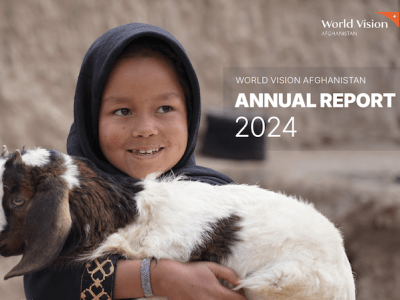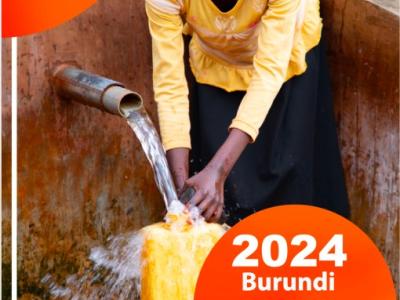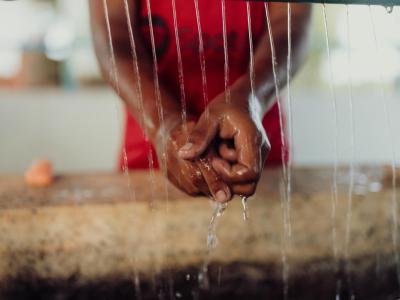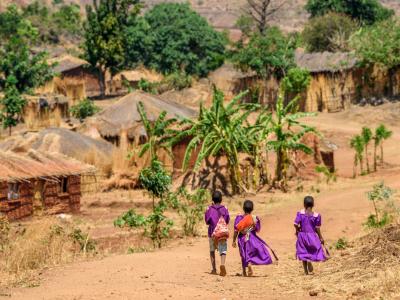video / April 10, 2025
Reconciliation Through Channel of Hope
Abel Bogal's journey is one of profound transformation—from a life marked by pain and aggression to becoming a beacon of hope and change. Through the support of World Vision PNG's Channel of Hope Program, Abel found purpose, healing, and strength. Now, as the President of the Morehead Sports Association, he inspires others to rise above challenges and stand against violence.
publication / April 1, 2025
Global Fund Annual Report 2023
Results of World Vision's HIV, TB, and Malaria programmes, funded by the Global Fund.
opinion / April 25, 2025
Proof in every dose: How local heroes are making immunisation #HumanlyPossible
Onei Uetela shares World Vision's commitment and plan to reach 4 million children with vaccines
article / April 21, 2025
Rebuilding Hope After the Earthquake
World Vision is deeply concerned for the well-being of children and their families affected by the earthquake: Children are among the most affected, facing increased risks, loss of learning, and urgent protection needs. World Vision is providing life-saving relief assistance to the children and the families affected by the earthquake. We aim to support 500,000 people, including 85,057 boys and 86,902 girls, through both immediate relief and long-term recovery efforts.
publication / April 24, 2025
Hope in Action: World Vision Afghanistan Annual Report | FY24
FY 24 Impact: World Vision Afghanistan worked across 34 districts and more than 3,200 villages across Herat, Badghis, Ghor, Faryab, and Nangahar provinces, delivering critical assistance to over 1.2 million people, nearly half of them children. Read the full report.
article / April 7, 2025
Teen Clubs in Malawi: Transforming lives of young people living with HIV
Discover how Teen Clubs in rural Malawi support young people living with HIV, offering guidance, community, and hope for a healthier, empowered future.
publication / April 22, 2025
World Vision Burundi Impact Report 2024
It is with immense pleasure that we present to you our Impact Report for 2024 which covers our work and impact from October 1st, 2023, to September 30th, 2024. Throughout the report, we highlight stories of people who have been positively impacted by your donations, your hard work and your partnership with World Vision.
article / April 22, 2025
World Vision’s sustainable learning initiatives restore hope for earthquake-affected children
When a powerful earthquake struck central Myanmar, schools crumbled and children’s education came to a sudden halt. In the aftermath, World Vision is helping restore safe learning spaces—like libraries and child-friendly areas—so children can continue learning, healing, and dreaming of a brighter future.
press release / April 4, 2025
Banteay Meanchey achieves Open Defecation Free status, transforming public health
A child is washing her hands at a handwashing station.

